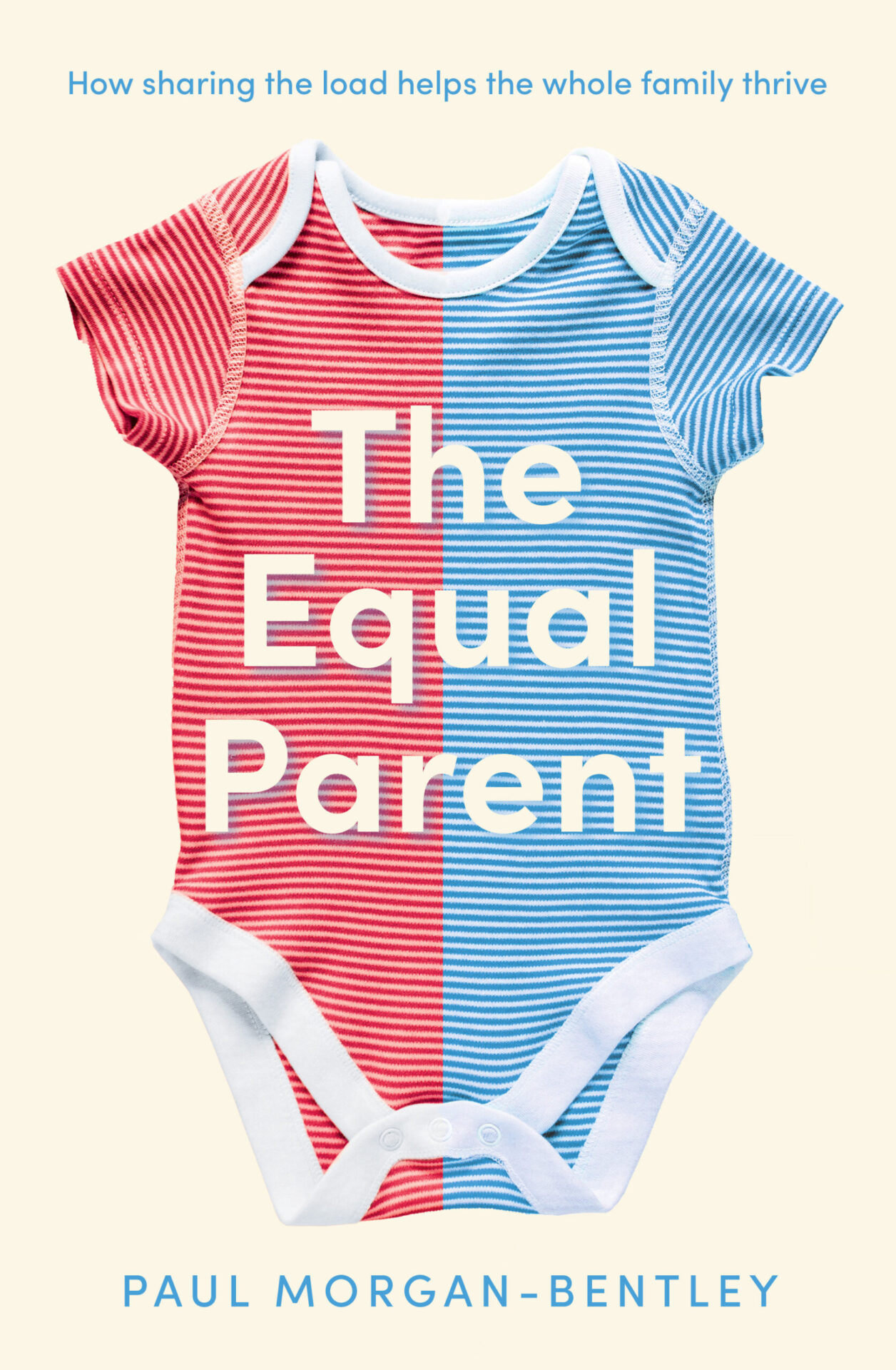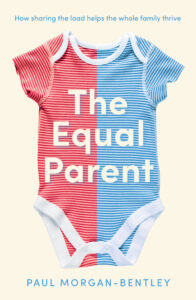For as long as I can remember, I have been telling anyone who will listen, that the real route to gender equality in the workplace, is sharing the load and respecting the role of fathers equally to that of mothers. Fathers should have the same opportunities to work flexibly and take extended leave.
In my conversations with working parents, we talk a lot about the division of labour in the home.
International surveys show that the most satisfying, supportive relationships are where both partners share work, child care and household duties. Same sex couples tend to be far more egalitarian, free from the provider father and ideal mother expectations, they share labour more fairly and split tasks based on what people like to do or are good at doing. There is no predisposed expectation for who does what.
This is precisely why I am so excited about Paul Morgan-Bentley’s book which is being published TODAY
As a new father and Head of Investigations at The Times, Paul Morgan-Bentley found himself lying awake in bed one night after settling his three-month-old back to sleep. With all these questions buzzing in his mind, he decided to go on a mission to answer them.
I was fortunate to see a preview. This book is a MUST READ! It’s a perfect blend of research, case studies, practical tips and real life storytelling. Fascinating, inspiring, humorous, authentic and best of all smashing gender stereotypes and knocking societal expectations on the head.
I posed some questions to Paul…..
Can dads really be equal parents?
Yes! So many mothers take on a greater share of responsibility for parenting than fathers – even in couples where both parents work and the woman earns more. Who packs the school bags? Who does more housework? Who worries more about schedules? However, there is fundamentally no reason dads cannot take on equal, or primary, responsibility for caring for their children.
What about biology?
Of course mothers are pregnant and give birth, and many women breastfeed. In those first few months after birth, women are extremely likely to take on primary responsibility for their children. But this should not mean they have to take on more of the load longer-term.
Science now shows us that men are just as capable as women of being highly responsive and caring parents. For example, fathers’ levels of oxytocin – the bonding hormone – often soon rise to the same levels as new mothers’, as long as they are committed and properly involved with caring for their children. The more you do with your baby – whatever your gender – the more bonded you can feel.
What about mother’s instinct?
There has been really interesting research that has tried to answer this question about whether mothers have a special parenting instinct. By scanning new parents’ brains, scientists have found that when a baby has a mother and a father, the mother usually feels more urgency and panic in responding to their baby crying. Something changes in her brain to cause this. Her mother’s instinct is biological.
However, when a baby has two gay fathers (like in my family) the men can respond in the same way mothers do to their babies. Their brains change like new mothers’ brains. Gay men do not have a special superpower! This hyper-alertness – the supposed mother’s instinct – is actually not to do with sex, but about our bodies responding to the terror that comes with having proper responsibility.
What does this mean in practice?
If there is one clear thing I have learned through trying to parent equally and in writing my book, The Equal Parent, it is that the key is having individual one-on-one time looking after your children. You only feel the full weight of primary responsibility when the buck stops with you.
For dads, this could be through taking an extended period of independent parental leave – when the other parent has gone back to work – but could also be at weekends, or during holidays.
The important thing for dads is having times when they are doing things their own way – coming up with the schedule for the day, overseeing weaning, packing the baby’s bag – making their own mistakes and gaining confidence in their own parenting techniques, rather than just helping out the mother sometimes, or responding to instructions.
What worked for your family?
I took the first half of shared parental leave and my husband, Robin, was off work for the second half of the year. This meant I ended up being more in charge of schedules – the bottle feeds, naps and trying to get Solly, our son, sleeping through the night. However, Robin was mostly in charge of weaning given it coincided with his time off work.
We can now see how these early responsibilities have shaped us as fathers. I still tend to be the one who obsesses over Solly’s sleep but I rarely worry about food. Robin does the online food shops and plans most of Solly’s meals. Of course, Robin and I both do a bit of everything – Solly does not starve when Robin is away – but, in general, we find ourselves deferring to each other in these areas.
Weaning can be such an important opportunity for dads to take on responsibility during the first year. While milk feeding is absolutely central to caring for babies, it does not actually last very long, whether by breast or bottle. But if you gain confidence in preparing food for children, it is a skill that lasts throughout their upbringing.
How can I tell if I am taking on more of the mental load?
If you do not trust your partner enough to believe, deep down, that they can cope on their own for a period of parental leave, it seems unlikely that you will share the responsibility fully in the long run. If, on a rare night out, you are checking your phone every half an hour to make sure they have successfully got the children to sleep, you are probably still carrying around most of the mental load.
If your partner is calling you when you are at the office because they do not know how to pack the kids’ school bags on their own, they are probably not sharing the stresses of parenting equally. Of course, this is all down to what people really want. You have to be committed to parenting equally to truly let go in these moments.
The Equal Parent by Paul Morgan-Bentley, published by Thread, can be ordered now:
https://www.amazon.co.uk/Equal-Parent-Sharing-Family-Thrive/dp/1804191205



